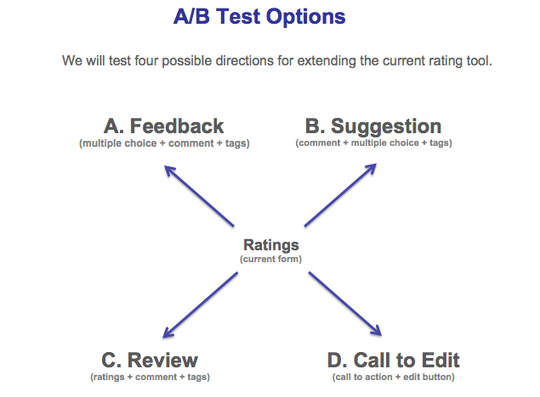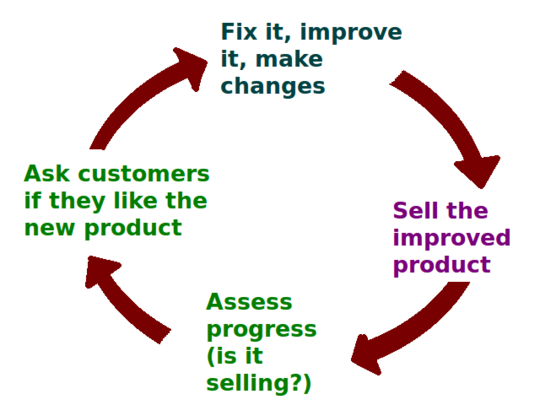The 5 Worst Mistakes "Expert" Marketers Are Making in 2014
When online "experts" share their "expertise," it is always advisable to observe with some skepticism. While the Internet can be considered the modern bastion of knowledge, opinions, and ideas, it is not completely dependable.
In fact, most of what you can find on the web is unreliable information. Take the case of online marketing as an example. Many online marketing "experts" who preach their supposedly effective strategies embarrass themselves by the failure of their ideas in their own practical application.
The following can be considered the worst mistakes in online marketing in 2014. They represent the biggest misconceptions in marketing being peddled by self-proclaimed marketing experts and even by those who have had some real experience in online marketing.
Too Aggressive and Too Much Marketing
Everything in excess is unlikely to be good. This concept also applies to online marketing. Inundate your audience with excessive promotional materials and you are bound to suffer undesirable consequences. It's alright to place typical text or banner ads on popular pages online. It's fine paying for occasional sponsored blog posts.
However, it's barely acceptable paying people to stimulate (or force) interest in a product through blog commenting, annoying forum hopping, and making bloggers writing patronizing posts about the products being marketed. Even worse is the act of some companies in paying trolls to spread negative information or to aggressively criticize competing brands or products.
Hopefully, everyone has already learned the lessons of Samsung getting fined for paying people to troll or bash HTC.
On the other hand, excessive marketing on social media can also backfire. Flooding Facebook, Twitter, and other social media platforms with marketing posts will likely become an annoyance. It will associate the brand or product being marketed with something not so pleasant.
Obvious Paid Blog or Social Media Posts
There's nothing wrong with paying bloggers to write about a product or brand. Likewise, it is acceptable to pay popular Facebook or Twitter users to occasionally write promotional posts for a product or company. However, to make the most of their impact, they need to be properly executed.
People nowadays are smarter and are able to distinguish marketing posts or company press releases from objective news or blogs. Also, it is not advisable paying for positive reviews especially for blogs or sites frequented by many devoted brand fans. These fans will easily spot the biases and will be relentless in criticizing such partial reviews to the detriment of the one paying for such reviews.
There's a reason why Microsoft had to distance itself from "paid mention" marketing strategies earlier this year.
While the adverse consequences of the paid partiality will mostly impact the credibility of a blog or site (not directly on the brand or product), fans of competing brands will not stop in trying to prove their point and present arguments and comparisons that will only highlight the weaknesses of the product being promoted.
Comment sections on blogs and sites are becoming a standard feature at present so it is very easy for criticisms on paid posts to be published on the same page where the paid post is published.
Lousily Conceptualized "Viral" Content and "Trending" Topics
Viral videos and other content online can be used for marketing purposes. However, they should also be properly thought out. It is important to avoid offensive, too risky and risqué, discriminating, politically incorrect, and polarizing content for viral marketing. Videos that become viral for the wrong reasons will only harm a product or brand's image.
Similarly, "hijacked" hashtags and obviously forced "trending" topics are unlikely going to yield the results desired so it's better not to do them. A company-initiated hashtag on Twitter, especially one that is vague or too self-serving, easily attracts negative and sarcastic feedback.
Strictly Sticking to a Plan, Refusing to Tweak
This is a classic marketing problem especially for those who offer their marketing solutions professionally. Many marketers still have the practice of presenting marketing plans to their clients and pursuing these plans without paying attention to the reactions or even to the past performance of said ideas.
Because they firmly believe in their "expertise," they think their plans are infallible so, for them, there's no need to adjust; quite often, the result of a raging ego. Many of their marketing plans, unfortunately, have not been optimized to get the best results possible; oftentimes due in part to lack of testing and assessment or trying to apply traditional outbound marketing tactics to the ever-evolving modern web.
It would certainly be helpful to do a study to find out if a plan works or if it can be improved further. AB-testing is always a viable option whether the campaign is assessing the performance of website landing pages, email marketing messages or adverts.
Too Much Focus on the Marketing, Not Coordinating with the Sales Team
The ultimate goal of marketing should be to encourage sales. A successful marketing campaign translates to good sales volumes. That's why it's very important for marketing and sales teams to coordinate.
For online companies, the critical point in the success of a marketing campaign is when a potential customer arrives at a landing page. A landing page is the page where the potential customer makes a purchase, avail of a service, or sign up for a subscription. It presents the most important opportunity of convincing a potential customer to proceed with the purchase.
Hence, it's only logical to properly design a landing page, to incorporate techniques or design ideas that will encourage a purchase.
Fortunately, there are tools that can help in coming up with effective landing pages and there certainly is no excuse for marketers failing to keep up. The landing page creator from GetResponse, for example, helps marketers to not only create highly optimized landing pages but also test various designs and assess conversion rates, signups and other metrics.
Or, a free website builder like IM Creator will allow any marketer with a dream to quickly create custom landing or sales pages in a matter of minutes to support any online activity. Better yet, for truly aligning sales and marketing teams, client relationship management services like Salesforce or Pipedrive become necessary for sharing information on clients and collaborating on marketing efforts.
The point here is that the tools exist to make sales efforts, marketing and collaboration effective and those who are slow to adapt with suffer.
Being mindful of these mistakes will help improve marketing efforts. Many of these errors are coming from a traditional way of thinking and approach to marketing in the old corporate world where the negative consequences were less evident. Adapting requires being nimble, attentive and promoting a culture ready to shift plans and strategies as the markets demand it.




